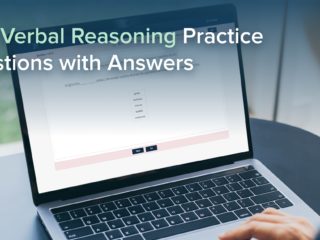| Getting your Trinity Audio player ready... |
Last Updated on April 26, 2023
To earn a competitive GRE Verbal score, you’ll need to become adept at solving GRE Text Completion (TC) questions. GRE students often fret about these questions, but there is nothing to worry about! The truth is that, with some time and smart GRE prep, GRE Text Completion questions can become one of your strengths on the GRE.
With some time and smart GRE prep, GRE Text Completion questions can become one of your strengths on the GRE.
So, if you’re seeking some GRE TC practice questions, we’ve got you covered. In this article we’ll talk a bit about Text Completion questions and walk through some high-value sample Text Completion questions.
Let’s begin by discussing what GRE Text Completion questions are.
- What Are GRE Text Completion Questions?
- How Many Text Completion Questions Are on the GRE?
- Improving Your Text Completion Performance on the GRE
What Are GRE Text Completion Questions?
GRE Text Completion questions present us with a sentence or series of related sentences that are missing a word or words. Where a word is missing, we will see a blank that we need to fill in. The word that we select to fill a blank must logically complete the sentence.
There are three types of Text Completion questions on the GRE: 1-blank, 2-blank, and 3-blank. One-blank questions are always only one sentence long and provide us with five answer choices from which we must choose one in order to fill the blank.
Two-blank and 3-blank TC questions can range from one sentence to multiple sentences (the length of a short paragraph). For 2-blank and 3-blank questions, we are given three answer choices for each blank, and we must choose one answer per blank.
There is no partial credit on 2-blank and 3-blank TC questions. So, for instance, on a 3-blank TC question, you must correctly fill all 3 blanks for the question to be marked correct.
KEY FACT:
There is no partial credit on 2-blank and 3-blank TC questions.
Let’s try a practice Text Completion question.
GRE Text Completion Practice Question #1
The mayor opted to uphold the curfew, despite relentless pressure from residents to __________ it.
- maintain
- endorse
- attempt
- promote
- rescind
Solution:
First, we read through the sentence. Next, we locate the signal word “despite.” We then determine that “despite” conveys a contrast. Now, we evaluate our known information: “The mayor opted to uphold (maintain) the curfew.” Finally, we must select the answer choice that best maintains a contrast with the known information.
(A) Incorrect. There is no contrast between upholding the curfew and being pressured to “maintain” the curfew. Those two things are in perfect agreement. Notice that “uphold” and “maintain” actually mean the same thing. Thus, this answer is the opposite of what we need.
(B) Incorrect. There is no contrast between upholding the curfew and being pressured to “endorse” (approve, support) the curfew. Those two things agree. Thus, this answer is the opposite of what we need.
(C) Incorrect. There is no contrast between upholding the curfew and being pressured to “attempt” the curfew. If anything, those two things agree.
Moreover, “attempt” does not really make sense in this context, since upholding the curfew indicates that it was already in place, and thus the “attempt” was already made. So, this choice does not create a logical time sequence.
(D) Incorrect. There is no contrast between upholding the curfew and being pressured to “promote” the curfew. Those two things agree. Thus, this answer is the opposite of what we need.
(E) Correct. There is a clear contrast between upholding the curfew and being pressured to “rescind” (take away) the curfew.
The mayor opted to uphold the curfew, despite relentless pressure from residents to rescind it.
This answer creates the needed contrast between the information that was given in the sentence and the statement that was incomplete.
Answer: E
Let’s now talk about how many Text Completion questions are on the GRE.
How Many Text Completion Questions Are on the GRE?
On each 20-question Verbal section of the GRE, you can expect to see about six GRE Text Completion questions, for a total of about 12 TC questions on the GRE.
You can expect about four one-blank questions, four to five two-blank questions, and three to four three-blank questions. Remember that each of these GRE Text Completion questions is worth the same number of points.
TTP PRO TIP:
Whether they contain one, two, or three blanks, all GRE Text Completion questions are worth the same number of points.
Let’s try another GRE TC question.
GRE Text Completion Practice Question #2
In the United States, some presidential campaigns begin nearly two years before an election, while in the United Kingdom, such __________ campaigns are unheard of.
- sensational
- partisan
- nonexistent
- protracted
- monotonous
Solution:
(A) Incorrect. Although “sensational” may seem related to the topic of presidential campaigns, this trap answer is actually off-topic. The fact is, the only information provided in the first part of the sentence deals with the length of campaigns. Thus, we have no evidence that the campaigns were “sensational” — or completely dull, for that matter.
(B) Incorrect. Although “partisan” (biased) may seem related to the topic of presidential campaigns, this trap answer is actually off-topic. The fact is, the sentence does not give us any information about the nature of the campaigns other than their length. Thus, we have no evidence that the campaigns were particularly “partisan” — although we might argue that campaigns in any country, by their very nature, are “partisan.” Regardless, “partisan” has nothing to do with the fact that “some presidential campaigns begin nearly two years before an election,” so this choice is unrelated to the given context.
(C) Incorrect. This answer choice is illogical in context. It does not make sense to say that presidential campaigns that “begin nearly two years before an election” are “nonexistent.” Clearly, the campaigns exist.
The key to avoiding this illogical answer is recognizing that “such __________ campaigns” refers to presidential campaigns that “begin nearly two years before an election.”
(D) Correct. This is the only answer choice that is logical in context. Given that the sentence discusses presidential campaigns that “begin nearly two years before an election,” it makes sense to refer to those campaigns as “protracted” (drawn out, prolonged).
In the United States, some presidential campaigns begin nearly two years before an election, while in the United Kingdom, such protracted campaigns are unheard of.
(E) Incorrect. Although “monotonous” (boring and repetitive) may seem appropriate to describe presidential campaigns that “begin nearly two years before an election,” the sentence does not actually give us any information about the nature of the campaigns other than their length. Thus, the campaigns could just as easily be “monotonous” or incredibly exciting. In other words, we can’t assume that because the campaigns are lengthy, they are “monotonous.”
Answer: D
Let’s now talk about how to improve your GRE Text Completion skills.
Improving Your Text Completion Performance on the GRE
After having taken a GRE practice test or a real GRE, students often seek out ways to improve their Text Completion skills. Here are some valuable tips.
(1) You Must Master GRE Vocabulary
Although GRE Text Completion questions are more than just tests of vocabulary knowledge, without a sufficient command of the necessary vocabulary, it will be hard to consistently answer these questions correctly. So, be sure to put the time in to master GRE vocabulary!
(2) Begin Your Text Completion Practice Untimed
Too often, students don’t spend the necessary time to become skilled at solving Text Completion questions. Instead, they rush through these questions. Don’t do that! You’ll see that by going slowly at first, you’ll not only improve your accuracy but also improve your speed.
(3) Study with Realistic GRE Text Completion Questions
If you’re using GRE prep materials that are subpar, you’ll struggle to earn the GRE score you deserve. So, do yourself the favor of preparing for the GRE with the best possible materials you can find. Having exceptional materials will make a huge difference for you.
(4) Keep an Error Log to Help You Identify Your Most Common Mistakes
Some students find that they make the same mistakes over and over when solving Text Completion questions, an issue that leads to subpar GRE scores. Don’t make this mistake. Be sure to keep an error log of all the mistakes you make. Review this log every few days. You’ll invariably find some wrong answer patterns that you can fix. Be sure to analyze all of the Text Completion questions you get wrong, not just the wrong answers from practice tests.
Let’s now try one more GRE Text Completion practice question.
GRE Text Completion Practice Question #3
Temperature-controlled sidewalk passageways — particularly prevalent in places with (i) __________ weather that needs to be shut out — can increase the overall physical fitness of a town’s population by making a commute on foot more (ii) __________ than any alternative.
Blank i
- severe
- congenial
- temperate
Blank ii
- agile
- monotonous
- enticing
Solution:
The known information that will help us fill the blanks is that the weather “needs to be shut out.” Given that information, it must be that the weather is somehow unpleasant or unfavorable.
Thus, we can immediately eliminate choice (C), temperate (mild, moderate), as the opposite of what makes sense for blank (i). After all, why would “temperate weather” need to be shut out? This choice goes in the opposite direction of what is logical in context. We have to be careful not to choose this trap answer simply because “temperate” sounds like “temperature-controlled.”
“Congenial” (pleasant, agreeable) is similarly illogical and can be eliminated as the opposite of what makes sense in the context of “weather that needs to be shut out.”
Choice (A), severe, is the only answer that fits the context of “weather that needs to be shut out.”
Moving on to blank (ii), we can see from the agreement signal “by” that blank (ii) should be in keeping with the information that precedes it. So, how would it be that temperature-controlled passageways “can increase the overall physical fitness of a town’s population?” What would bring about that result?
Well, what we know so far is that temperature-controlled sidewalk passageways shut out “severe weather” — a positive effect. Logically, then, people must choose to use the passageways, and thus the population’s physical fitness increases because people are walking instead of commuting in other ways.
Thus, choice (F), enticing (appealing, attractive), fits the context well. A commute in which “severe weather” is no longer an issue would be “more enticing than any alternative,” and so people would end up walking more — and becoming fitter — than they would if they commuted in other ways (and thus still had to deal with “severe weather”).
Choice (D), agile, is illogical. Perhaps the townspeople themselves are “agile” when moving through the passageways, but it does not make sense to call “a commute on foot” itself “more agile than any alternative.”
Choice (E), monotonous (boring and repetitive), does not make sense because we need something that directly connects to “can increase the overall physical fitness of a town’s population.” Making a commute on foot “more monotonous than any alternative” would not necessarily result in increased fitness — a commute by car or train could also be “monotonous,” and the fitness of commuters would not increase. “Monotonous” is not relevant to what is discussed in the sentence.
Temperature-controlled sidewalk passageways — particularly prevalent in places with severe weather that needs to be shut out — can increase the overall physical fitness of a town’s population by making a commute on foot more enticing than any alternative.
Answer: A, F
Following the tips and tricks given in this article, along with doing oodles and oodles of practice questions, will go a long way toward helping you score a home run on GRE Text Completion questions. Good luck!



